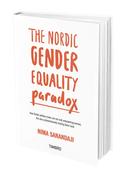From steamy Miami to the thriving cores of cities from New York, San Francisco, Houston and Chicago, swank towers, some of them pencil thin and all richly appointed. This surge in the luxury apartment construction has often been seen as validation of the purported massive shift of population, notably of the retired wealthy, to the inner cities. Indeed with the exception of a brief period right after the Great Recession, there was slightly greater growth in core cities than the suburbs and exurbs. It was said that we were in the midst of a massive “return to the city.” read more »
Demographics
Luxury Urban Housing, Built on a Myth, Is About to Take a Big Hit
- Login to post comments
Can Southland be a 'New York by the Pacific'?
Throughout the recession and the decidedly uneven recovery, Southern California has tended to lag behind, particularly in comparison to the Bay Area and other booming regions outside the state. Once the creator of a dispersed, multipolar urban model – “the original in the Xerox machine” as one observer suggested – this region seems to have lost confidence in itself, and its sense of direction. read more »
- Login to post comments
Suburbs (Continue to) Dominate Jobs and Job Growth
Data released by the federal government last week provided additional evidence that the suburbs continue to dominate metropolitan area population growth and that the biggest cities are capturing less of the growth than they did at the beginning of the decade. read more »
- Login to post comments
Scandinavian Women Do Well, Except at the Top
In which part of the world should we expect most women to reach the top? The answer has to be the Nordic countries. According to The Global Gender Gap report, for example, Iceland is the most gender equal country in the world followed by Norway, Finland and Sweden. Yet as I will discuss below, this has not translated in women making it to “the top”, as one might expect. This a paradox that I will seek to address. read more »
- Login to post comments
Black Residents Matter
Black lives matter, we’re told—but in many American cities, black residents are either scarce or dwindling in number, chased away by misguided progressive policies that hinder working- and middle-class people. Such policies more severely affect blacks than whites because blacks start from further behind economically. Black median household income is only $35,481 per year, compared with $57,355 for whites. read more »
- Login to post comments
Where Millionaires Are Moving
In this oligarchic era, dominated as never before in modern history by the ultra-rich, their movements are far more than grist for gossip columns. They are critical to the health of city economies around the world. read more »
- Login to post comments
Coastal California Getting Older, Not Bolder
For the better part of a century, Southern California has been seen as the land of surfers, hipsters and youthful innovators. Yet the land of sun and sea is becoming, like its East Coast counterpart Florida, increasingly geriatric.
This, of course, is a global and national phenomenon. From 2015-25, the number of senior-headed U.S. households, according to the Joint Center on Housing Studies at Harvard University, will grow by 10.7 million, compared with 2.5 million households headed by people ages 35-44. read more »
- Login to post comments
Millennial Home Ownership: Disappointment Ahead in Some Places?
Millennial renters overwhelmingly plan on buying their own homes, though affording them could be far more challenging than they think. This is an important conclusion from a renters’ survey by apartmentlist.com, an apartment search website (See: The Affordability Crisis: Are Millennials Destined to be Renters?). read more »
Empire State Building Toward Wins for Trump, Hillary
New Yorkers like to think of themselves as ahead of the curve but, this year, they seem to be embracing the most regressive politics. The overwhelming favorite in Tuesday’s primary among Republican candidates – with more than 50 percent support, according to RealClearPolitics – is Donald Trump, the brash New Yorker whose campaign vows to “make America great again.” On the Democratic side, New Yorkers appear to prefer Hillary Clinton, their former U.S. senator and quintessential avatar of the gentry liberals, rather than feeling “the Bern.” read more »
- Login to post comments
Largest Cities in the World: 2016
Tokyo-Yokohama continues to be the largest city in the world, with nearly 38 million residents, according to the just released Demographia World Urban Areas (12th Annual Edition). Demographia World Urban Areas (Built-Up Urban Areas or Urban Agglomerations) provides annual estimates of the population, urban land area and urban population density of all identified built-up urban areas in the world. This year's edition includes 1,022 large urban areas (with 500,000 or more residents), with a total population of 2.12 billion, representing 53 percent of the world urban population. read more »
- Login to post comments





















